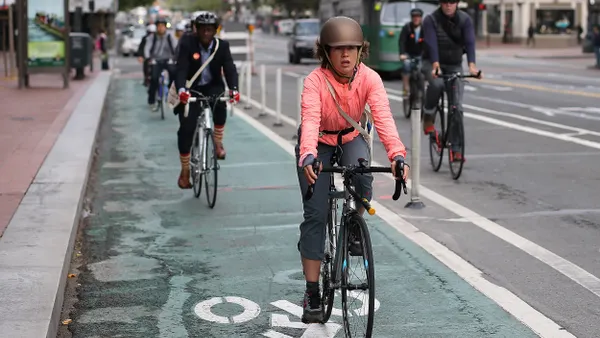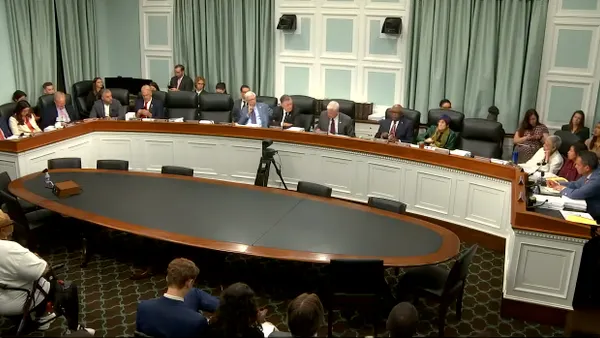Dive Brief:
- Uber CEO Dara Khosrowshahi detailed a series of announcements in a blog post on Wednesday regarding the company's commitment to urban sustainability and service. Most notably, Khosrowshahi said the company will commit $10 million over the next three years to "campaign for ideas" that advance shared mobility, including efforts on congestion pricing.
- Khosrowshahi also announced Uber will donate $250,000 to SharedStreets to build standards for how private players can share data, and the company has launched first-of-its-kind charging stations for its fleet of Jump bikes in Sacramento, CA. Uber will also make an undisclosed donation to PeopleForBikes through its new sustainable mobility fund.
- "[O]ur technology has become an important part of the transportation fabric of cities. With that comes a responsibility: we recognize we need to step up and support cities that take bold steps to solve their transportation problems," Khosrowshahi wrote. "We are in a unique position to have a meaningful and positive impact on the communities we serve across the globe — a responsibility we don’t take lightly."
Dive Insight:
This series of announcements is a step forward in Uber's mission to expand its reputation as a transportation technology company and further reign over the shared mobility industry. Uber was one of 15 companies to sign the Shared Mobility Principles for Livable Cities in February, and has since made significant moves to reach outside of its car-sharing bubble — including its acquisition of Jump in April.
Specifically, Uber's efforts to advance congestion pricing are going to be critical for cities. "We’re ready to do our part to help cities that want to put in place smart policies to tackle congestion — even if that means paying money out of our own pocket to pass a tax on our core business," Khosrowshahi wrote. And while this mission is admirable, it may be an uphill battle, as evidenced by congestion pricing controversy in New York City.
In an article titled "Uber Will Spend $10 Million to Solve a Problem It Helped Create," The New York Times reports Uber is facing criticism for its pledge, mainly due to the company's contribution to congestion and vehicle emissions over the last decade. Critics also say Uber could afford more of an investment in such climate efforts, considering the private company is worth an estimated $62 billion.
It is evident Uber is attempting to reverse its impacts on the environment while staying competitive in the industry, especially with its primary competitor Lyft. Earlier this month, Lyft made significant climate commitments — the company became fully carbon neutral and committed to 100% renewable energy across its entire platform — and has worked to expand its transportation services, including launching scooter fleets in Denver and Santa Monica, CA. Uber's newest commitments place the companies neck-and-neck, with cities as the main beneficiaries of any future efforts.










